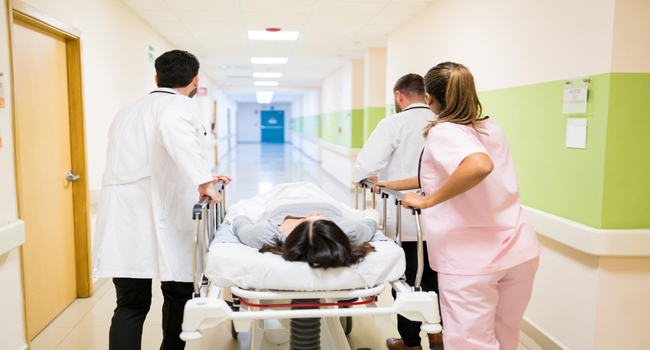
Thrombectomy is a procedure that removes blood clots from large vessels in the brain, and it is often necessary to improve outcomes in stroke patients. However, not all hospitals are equipped to perform this procedure, especially in non-urban areas.
Clinical Trial
A clinical trial explored the best ways to transport stroke patients in areas without easy access to specialized treatment centers. The trial, which was conducted in Catalonia, Spain, aimed at determining whether directly transporting patients to a specialized thrombectomy-capable center or to a local stroke center was more beneficial.
The trial included 1,401 patients who were suspected of having a large-vessel occlusion stroke, meaning a blood clot was blocking a major blood vessel in their brain. All patients were attended to by emergency medical services and were transported to either the closest local stroke center or a thrombectomy-capable center.
Results
The trial found that there was no significant difference in neurological outcomes between patients who were transported directly to the specialized center and those who were taken to a local stroke center first. The main thing the researchers looked at was how disabled people were 90 days after they had a stroke. They used a special scale to measure this, which went from 0 (no problems) to 6 (dead). They also looked at other things like how many people got certain types of treatment and how many people died within 90 days.
Interestingly, the trial did find that patients who were transported directly to the specialized center were less likely to receive intravenous tissue plasminogen activator but more likely to receive thrombectomy. Intravenous tissue plasminogen activator is a medication used to dissolve blood clots, and it is often administered to stroke patients who are not eligible for thrombectomy or who need additional treatment. However, the medication must be given within a certain timeframe after the onset of symptoms, and delays in transportation may make it less effective.
The clinical trial was conducted in non-urban areas in Catalonia, Spain, where access to specialized treatment centers may be limited. The results suggest that transporting stroke patients to the closest local stroke center may be just as effective as directly transporting them to a thrombectomy-capable center in these settings.
Conclusion
This clinical trial found that there was no significant difference in neurological outcomes between stroke patients who were transported directly to a thrombectomy-capable center and those who were taken to a local stroke center first. However, patients who were transported directly to the specialized center were less likely to receive intravenous tissue plasminogen activator but more likely to receive thrombectomy. It is important to conduct further research in other regions to determine the best transportation strategies for stroke patients.
__________

